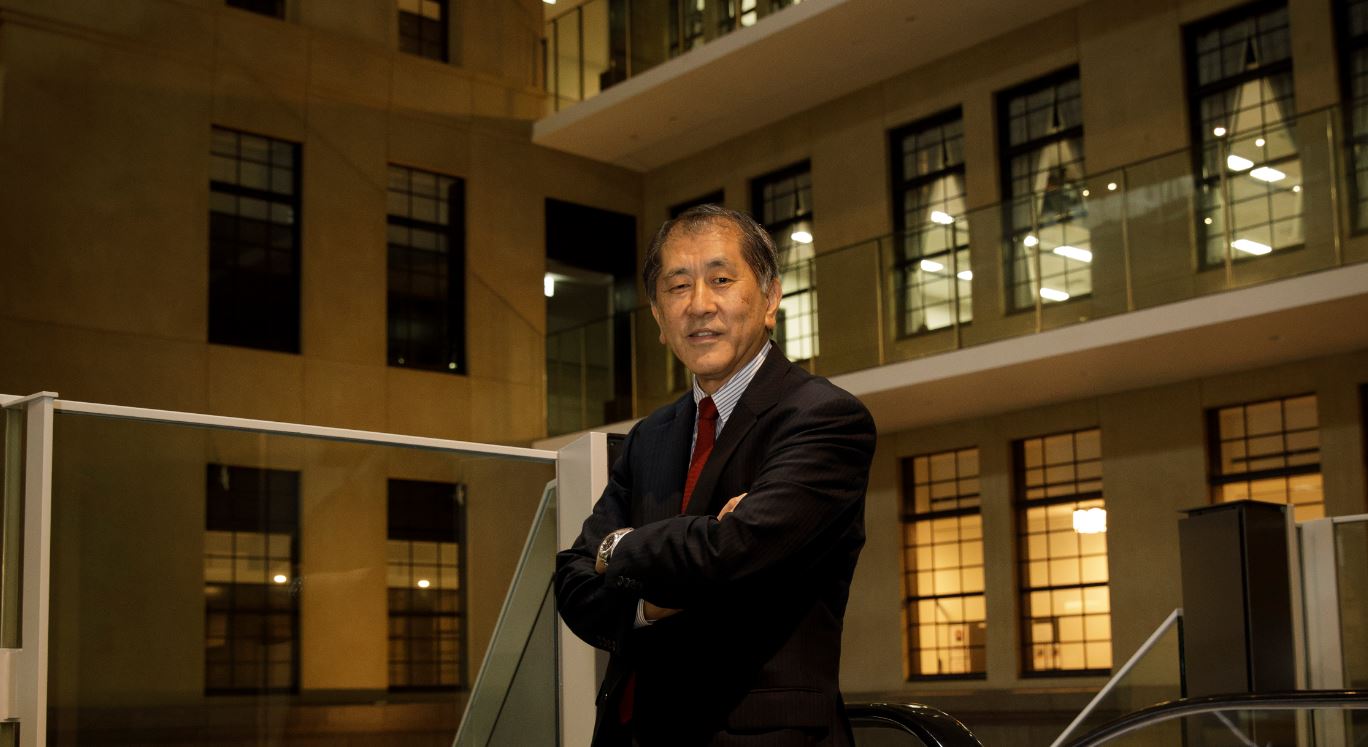
Envisioning a Waseda that shines on the global stage
As the new president of Waseda University, one of the most important missions I have is to transform Waseda into one of the world’s top-tier universities. To accomplish this mission, Waseda faculty and staff must succeed in reaching the goals set in Waseda Vision 150, the strategic plan formulated by my predecessor, President Kaoru Kamata, and continue to work toward them while moving onto the next phase. Because Waseda Vision 150 covers a broad range of comprehensive goals across various fields, from research and education to organizational management, there is a need to prioritize them. I would like to prioritize them in the order of: 1) Research, 2) Education, and 3) Engagement at both the global and local levels. Below, let me introduce some of the things we have done or are doing.
In order to further raise the quality of research at Waseda, it is essential to recruit promising researchers and administrative staff and nurture their growth so that they will surpass the achievements of current faculty and staff someday. I believe that one of the jobs of university faculty is to nurture the next generation and part of this is not hesitating to appoint researchers who surpass ourselves. In fact, I have always told my Master’s and PhD students to go beyond what I have been able to accomplish. Therefore, I would like to actively engage in inviting young researchers, especially from overseas, to come to Waseda.
In terms of enhancing the quality of education, I believe it is important to systematize the curriculum. By reducing the number of courses with overlapping content and creating a specific order in which courses should be taken, we will create a system that allows students to learn more effectively. This does not only benefit students; it also cuts down on the workload of faculty.
Lastly, for engagement, Waseda’s Hirayama Ikuo Volunteer Center (WAVOC) has more than 9,000 students registered as volunteers at present. This number suggests that Waseda students understand the importance of engaging with their communities. We need to encourage more students to participate in volunteer activities so that they can learn soft skills and build character from these experiences.
For Waseda to advance in research, education, and engagement, there is a need to publicize new initiatives and outcomes of related activities to both domestic and international audiences, as well as build a strong financial base to support them. Though the university already disseminates information about its progress and achievements in English, it will become vital to do the same in other languages, such as Chinese, to reach more gifted researchers and students around the world. Also, we need to consider seeking financial support beyond Japan through international fundraising.
Determination and commitment for transforming Waseda
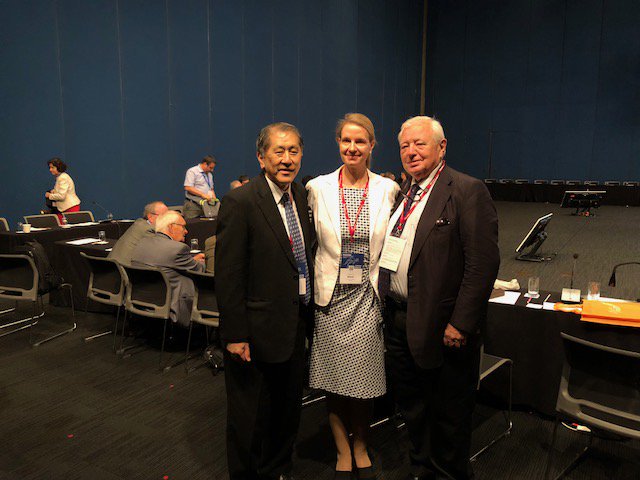
As we work towards achieving the goals set in Waseda Vision 150, faculty, staff, and the entire Waseda community must be determined and committed to transforming Waseda into a stellar, world-class university. According to one Harvard University professor, faculty at Harvard are usually only focused on their research and classes, regardless of what is said in the university president’s speeches, but when it comes to recruiting the top researchers and students, everyone comes together with a shared vision to accomplish this goal. This is how Harvard became one of the most prestigious institutions in the world.
Let me introduce another example. In the early 1930s, top American universities were behind European universities, but they were determined to catch up to their counterparts. The American universities then experimented with and introduced new initiatives such as syllabuses, the tenure-track system for young researchers graduating from graduate schools, and student course evaluations, which we now use in our university as well. Thanks to these systems, four decades later, American institutions came to be acknowledged as some of the world’s top-tier universities.
For Waseda University to become an internationally-respected university, determination and continued commitment by the Waseda community are necessary. Please join me in leading Waseda to shine on the global stage.
Intellectual resilience and flexible sensitivity

As we strive to become one of the world’s leading universities, I hope that students will develop intellectual resilience and flexible sensitivity during their time at Waseda.
For instance, there are right and wrong answers for problems in university entrance exams, but this may not be the case with real-life issues, such as global warming and conflicts among nations. Sometimes, even figuring out what the problem is can be difficult. By developing intellectual resilience, students will be able to tackle such problems, identifying problems and analyzing issues at hand to drive original solutions.
Also, I would like to remind students that it is important to pursue their interests, regardless of whether or not they think it will be practical. Nothing is ever a waste of time if you are passionate about it.
Flexible sensitivity is the capacity to embrace diversity. At Waseda, everyone is treated equally and has equal access to the teaching and learning environment regardless of gender, nationality, religion and beliefs. Students can learn from interacting with faculty, staff, and their peers from different backgrounds and become more open minded.
More and more classes are being offered in English at Waseda with many students of different nationalities enrolling in them, but if our international students only learn in English at Waseda, it defeats the purpose of coming all the way to Japan. Through studying in Japanese as well as English, Japanese students and international students will have a chance to interact. Only then can Waseda achieve a true form of internationalization.
I also encourage all students, particularly local Japanese students, to step out of their comfort zone and go overseas at least once, so that they can find out how Japan is being perceived overseas. Even if they decide to work in Japan after graduation, they will still need an international perspective, especially in the information-driven society that we live in today.
Many Waseda students are motivated to acquire the skills and knowledge they will need to engage with the world. We assure them that we will continue to improve and enhance the learning environment at Waseda to support all of our students in achieving their goals.
*This text was translated from a Waseda Gakuhou article published in December 2018.
Profile
After completing his undergraduate degree at the School of Political Science and Economics in 1975, Aiji Tanaka obtained his Master’s and doctoral degrees in political science at Ohio State University. Prior to his professorship at Waseda, Tanaka taught at Aoyama Gakuin and Toyo Eiwa Universities. He has also held various external leadership positions, such as that of President of the International Political Science Association.
News from the Office of the President
-
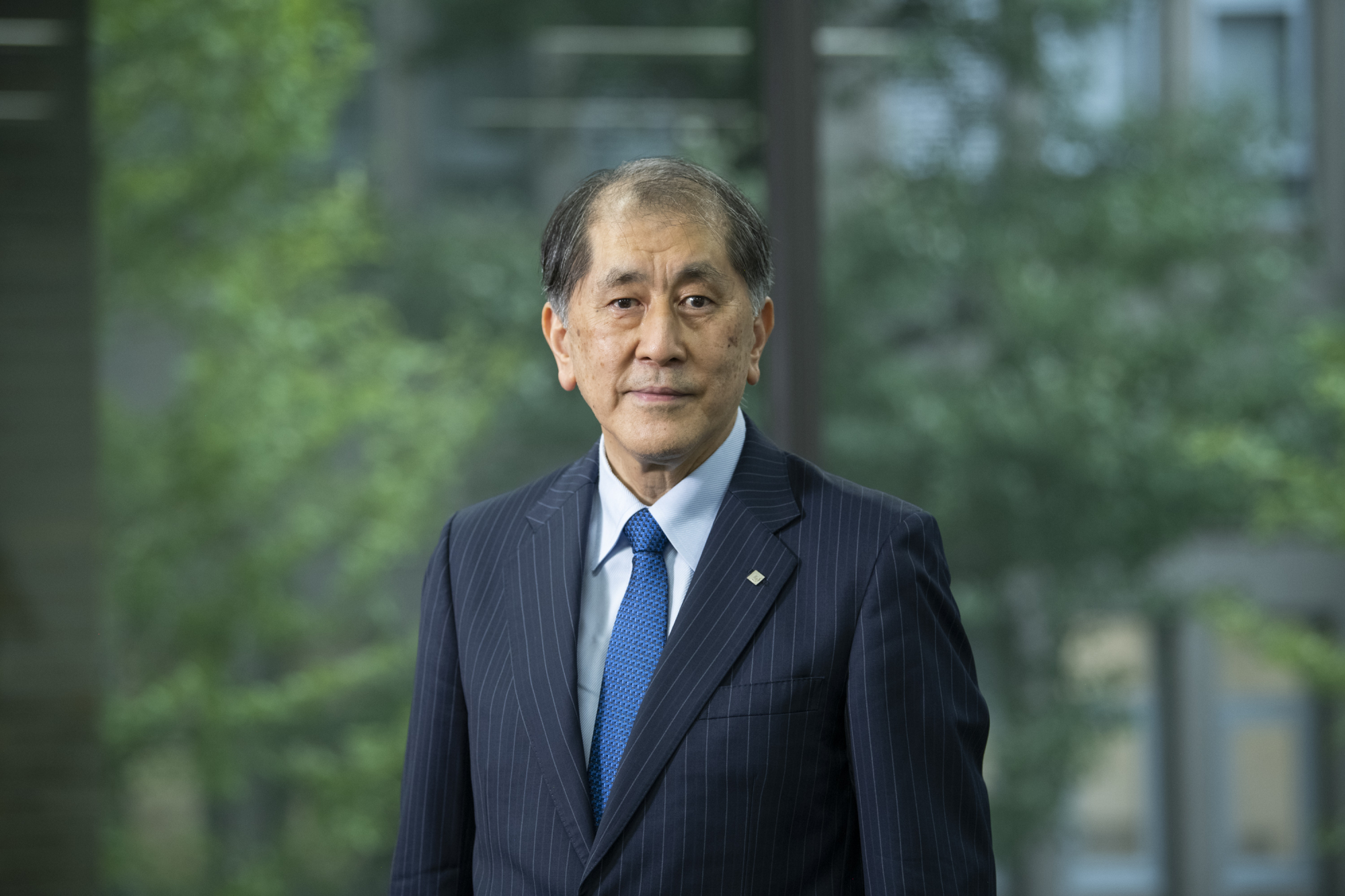 Office of the President : President :
Office of the President : President :New Year’s Greetings from President Tanaka
Jan 1, 2026 -
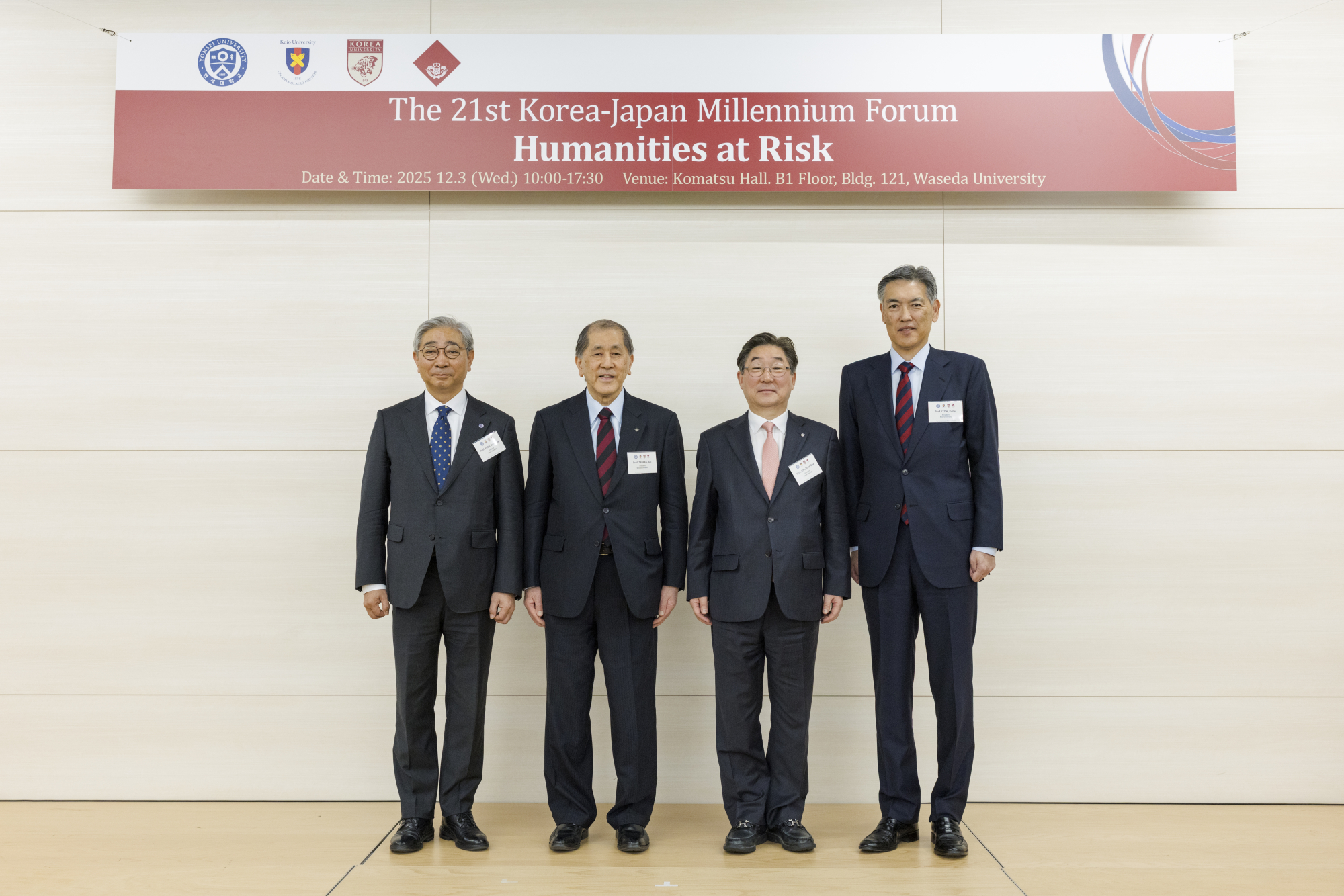 International Office : Office of the President :
International Office : Office of the President :The 21st Korea-Japan Millennium Forum Held
Dec 22, 2025 -
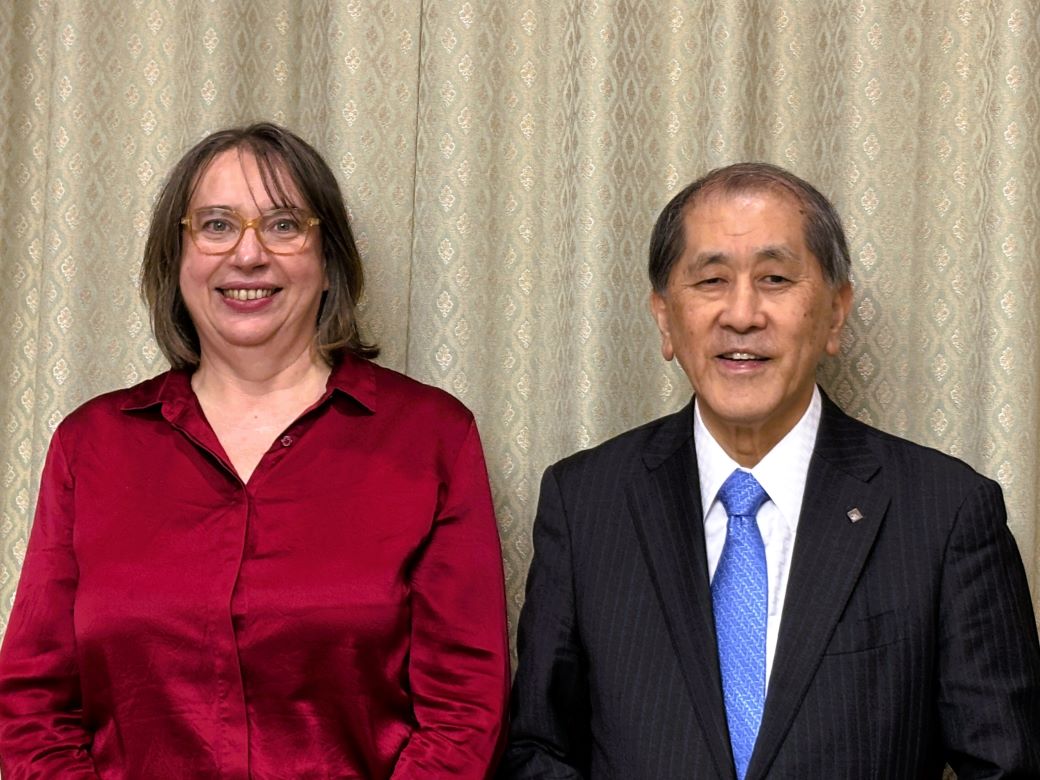 International Office : Office of the President :
International Office : Office of the President :Delegation from Université de Strasbourg visits Waseda
Dec 11, 2025 -
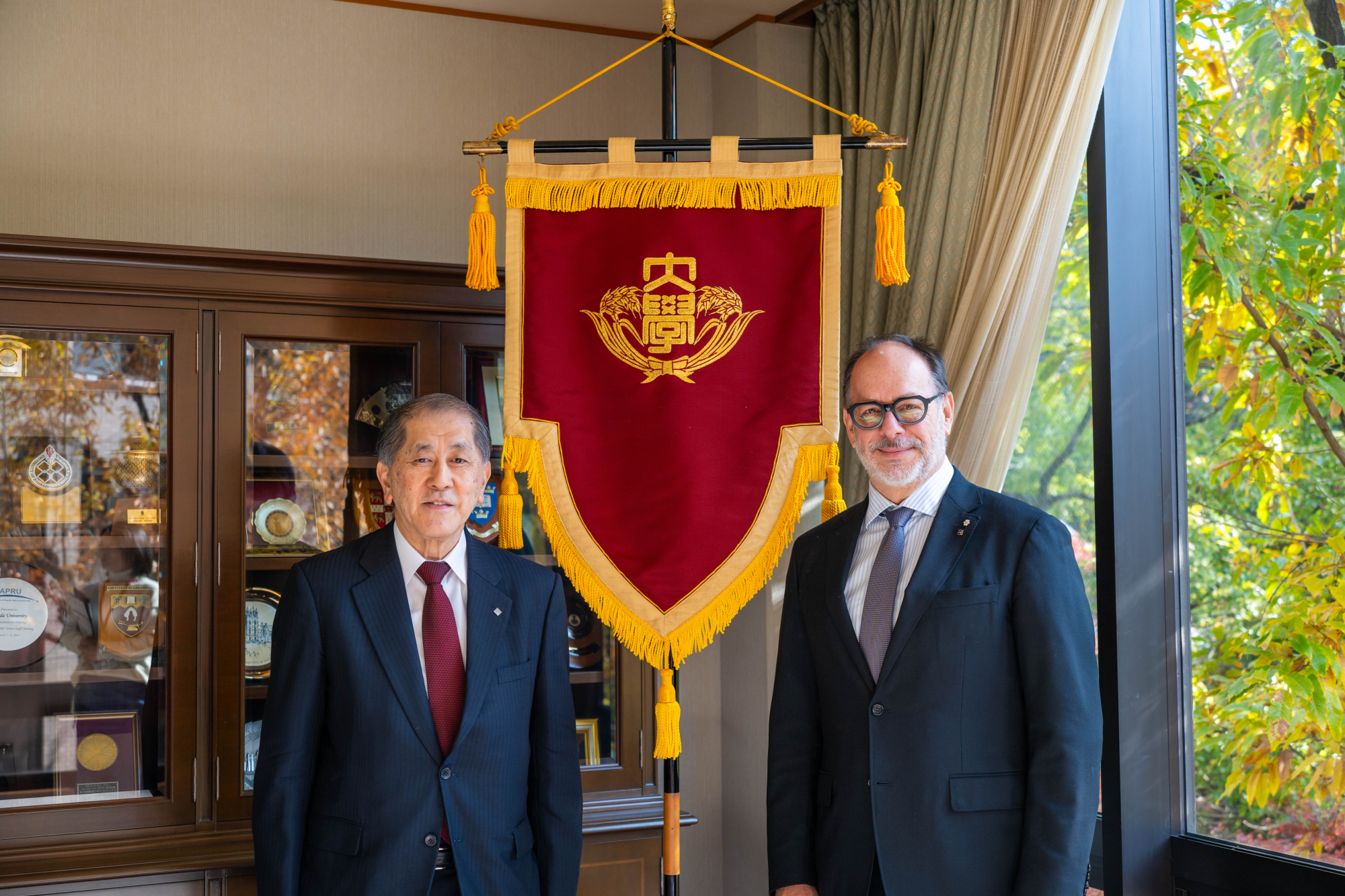 International Office : Office of the President : President : President-global :
International Office : Office of the President : President : President-global :Delegation from Université de Montréal visits Waseda
Nov 28, 2025 -
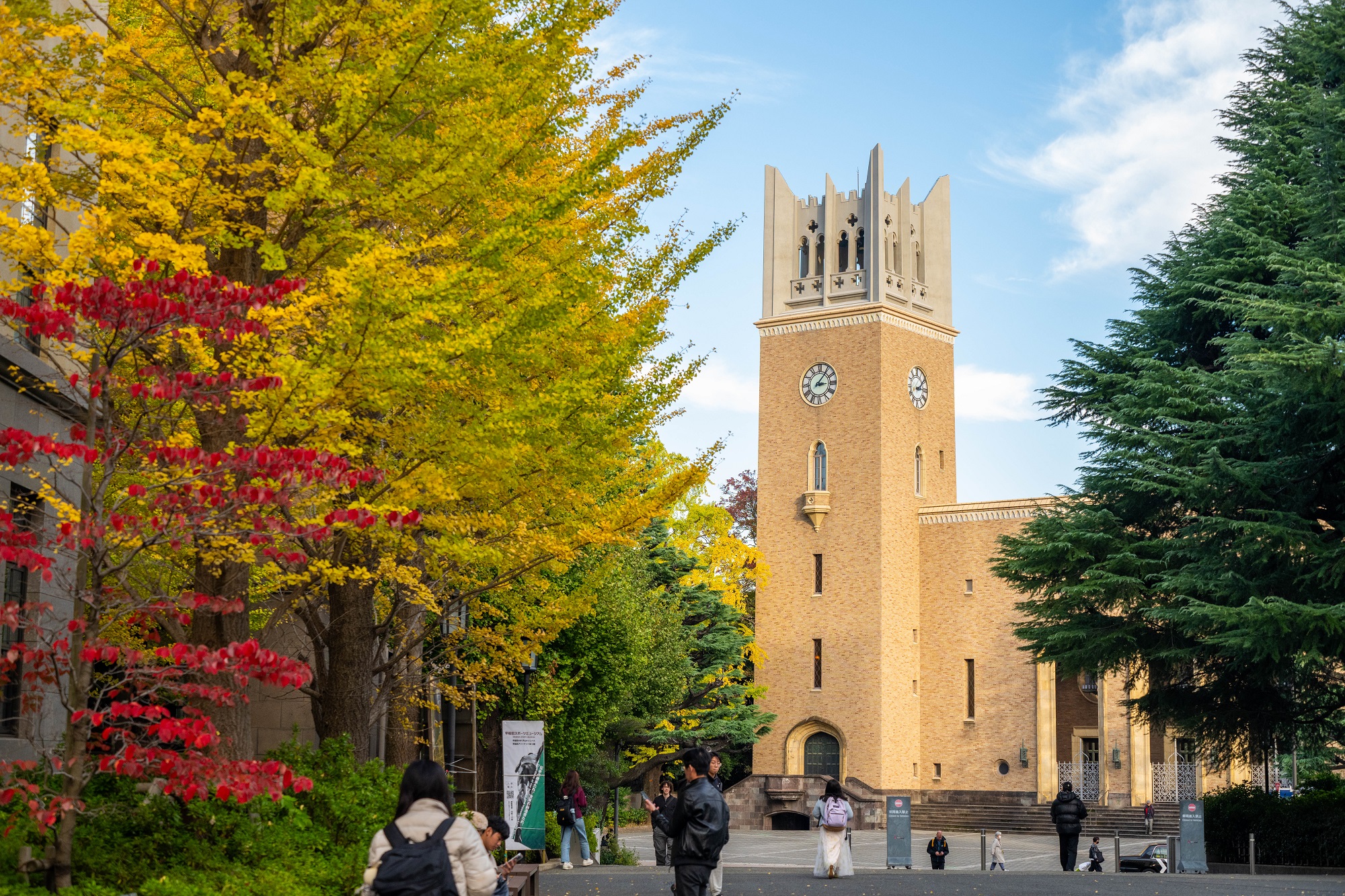 Education : Feature : Office of the President : President :
Education : Feature : Office of the President : President :Waseda Featured in the November Issue of TIME Magazine’s Asia Edition
Nov 14, 2025 -
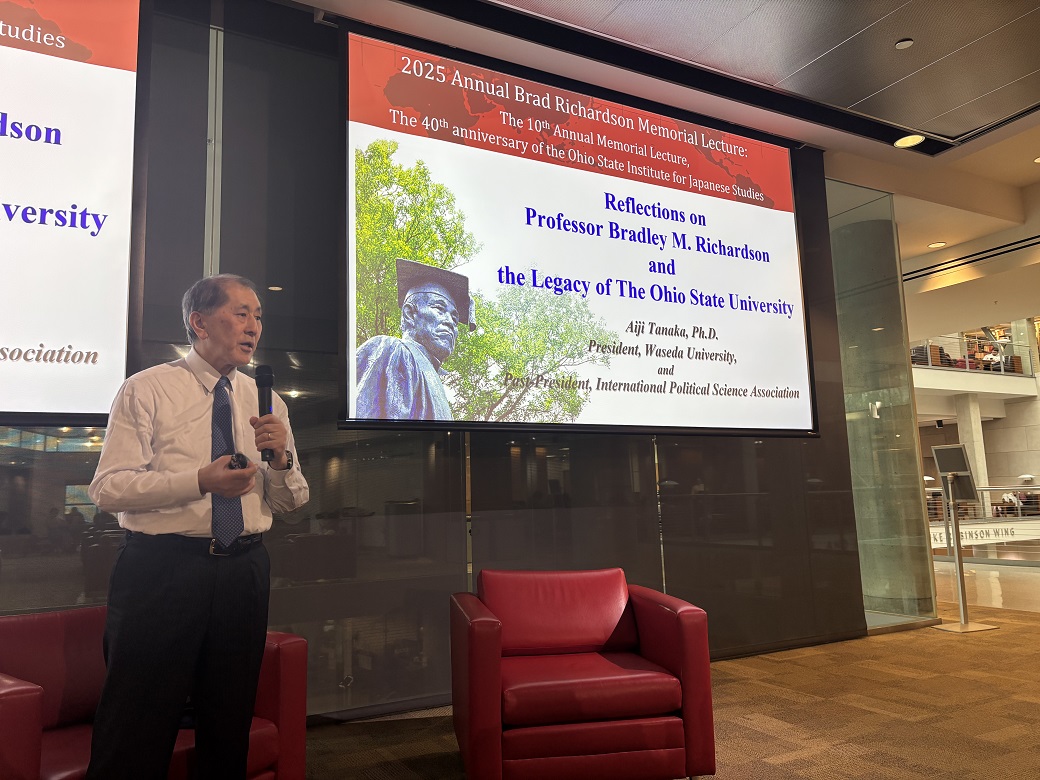 International Office : Office of the President : President :
International Office : Office of the President : President :President Tanaka Delivers Memorial Lecture at Ohio State University
Nov 11, 2025 -
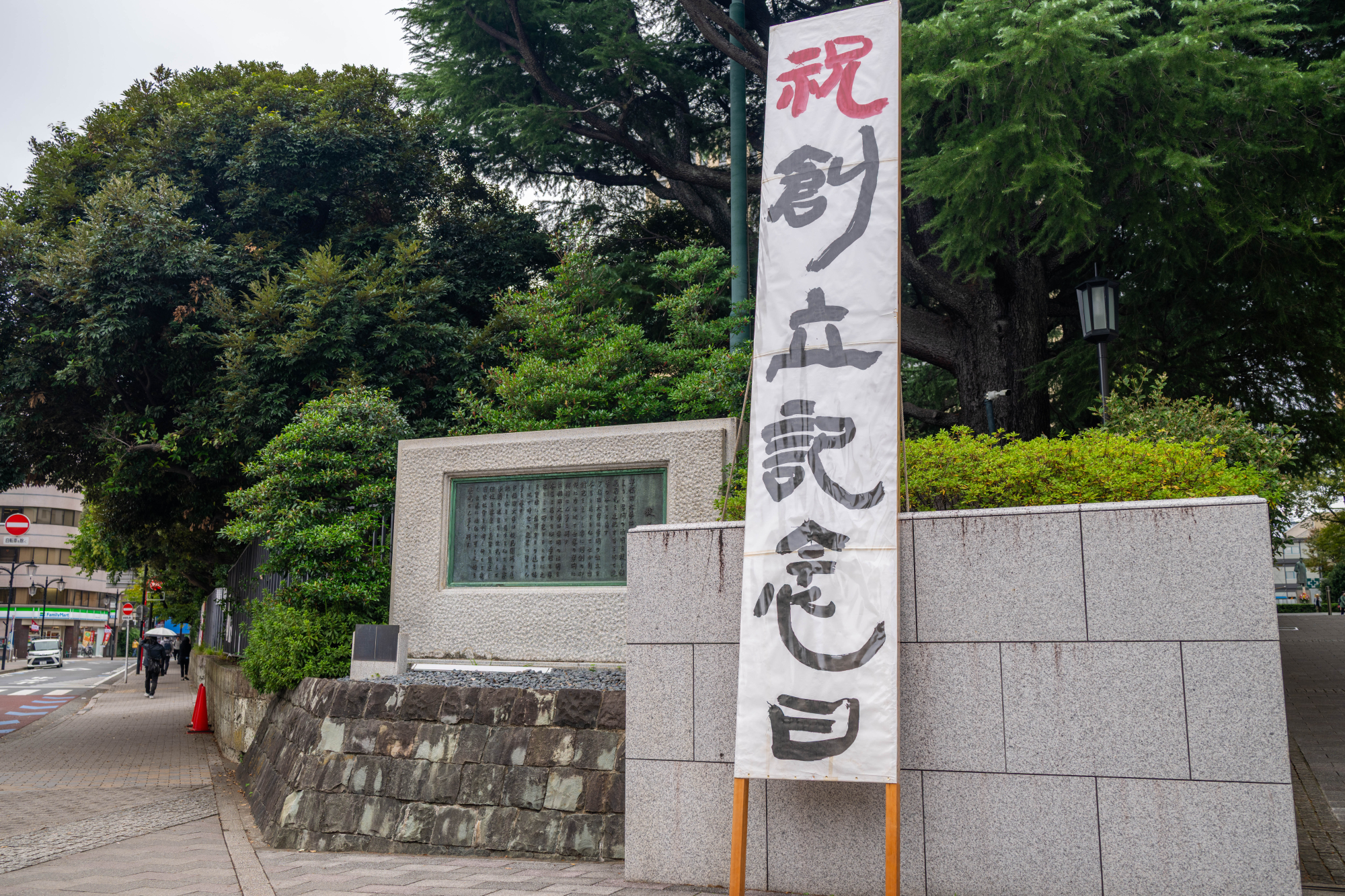 History : Office of the President : President :
History : Office of the President : President :143rd Anniversary of Waseda’s Founding: University Representatives Offer Flowers at Founder Shigenobu Okuma’s Grave and the Peace Memorial Monument
Oct 22, 2025 -
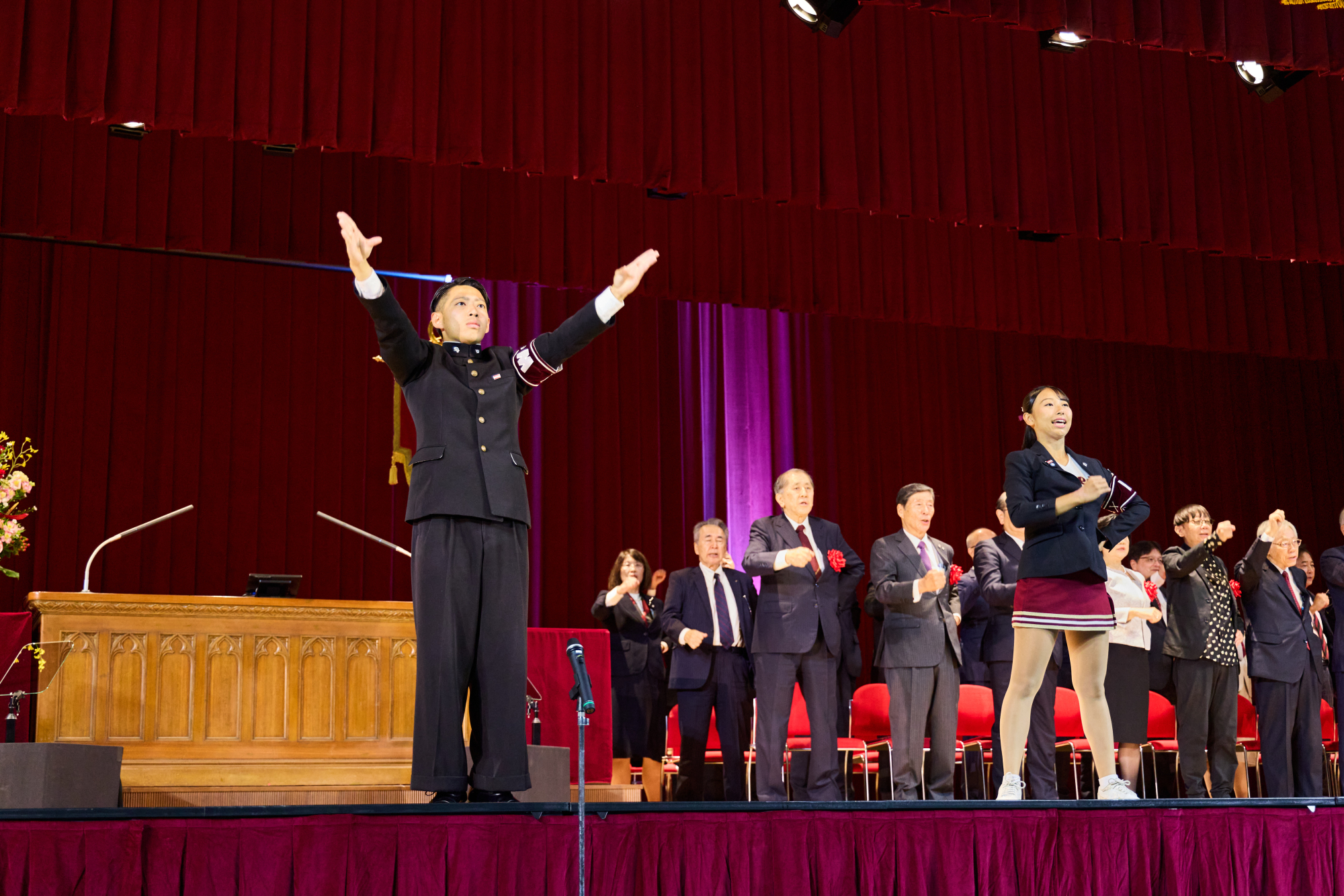 Alumni : Editor's Pick : Office of the President : President :
Alumni : Editor's Pick : Office of the President : President :Opening Ceremony Held to Kickoff Waseda University’s 150th Anniversary Project
Oct 22, 2025 -
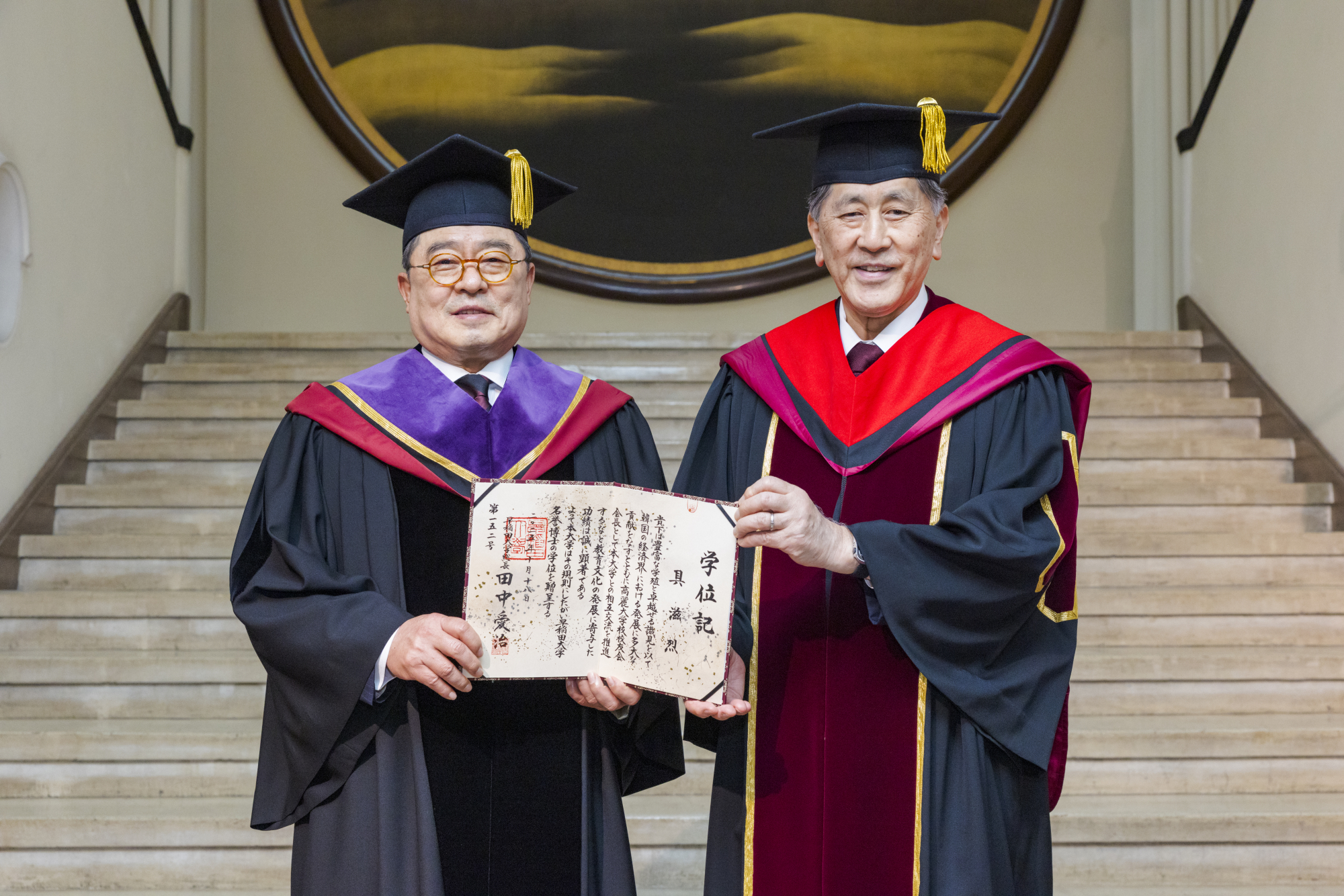 International Office : Office of the President :
International Office : Office of the President :Honorary Doctorate Conferred on Dr. Cha-Yol Koo, the 33rd President of the Korea University Alumni Association
Oct 21, 2025 -
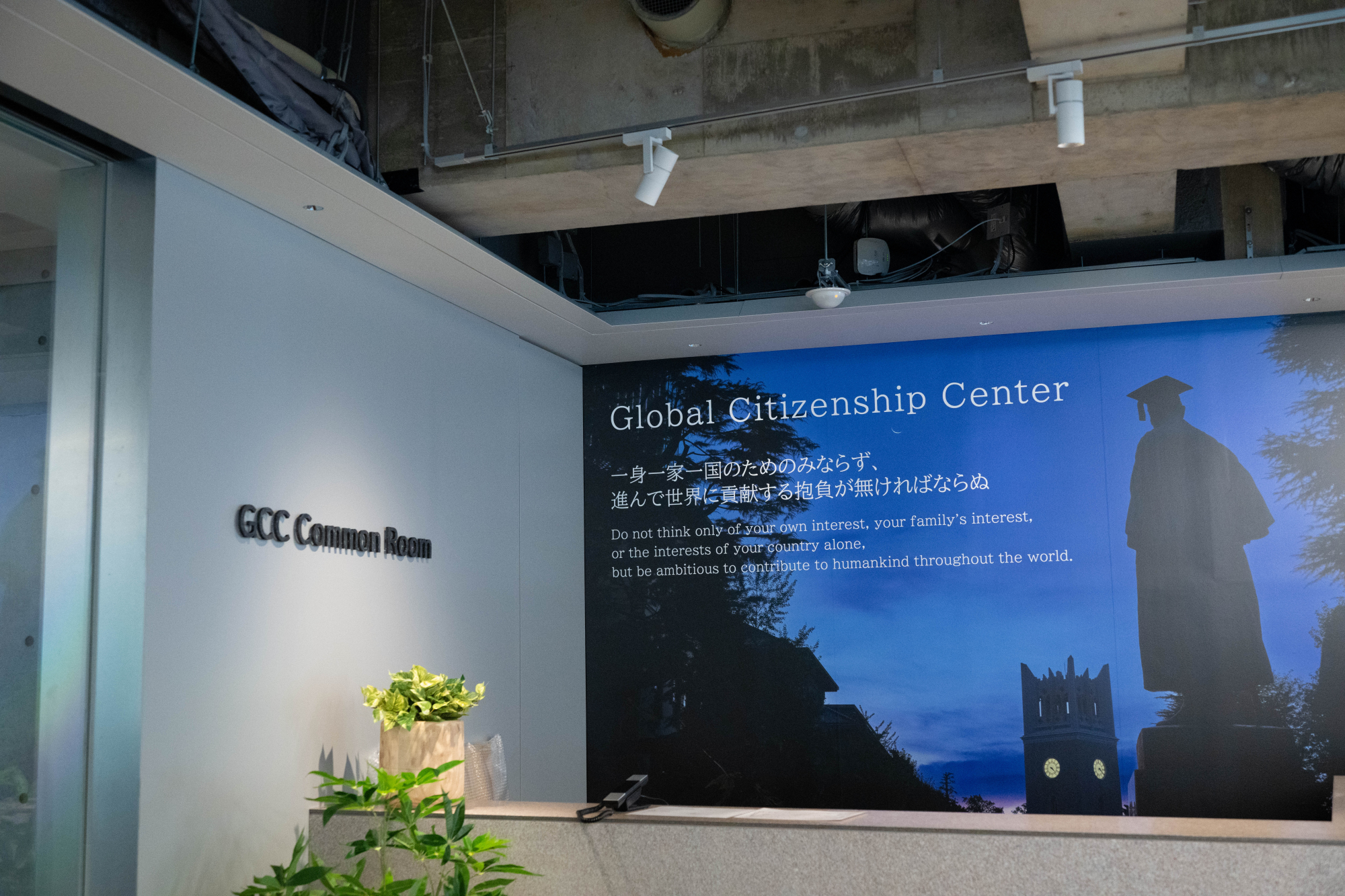 History : Office of the President : President :
History : Office of the President : President :GCC Common Room Opens – A Hub at the Intersection of Community & Society
Oct 17, 2025













